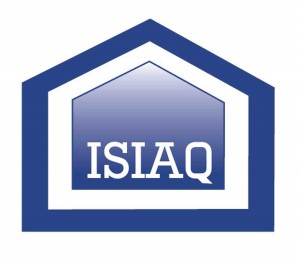(Note: This post is by Hal Levin)
 The Alfred P. Sloan foundation has approved a grant to ISIAQ, the International Society of Indoor Air Quality and Climate, to organize a symposium at the Healthy Buildings 2015-Europe conference in Eindhoven, Netherlands, May 18- 20, 2015. The Symposium organization project will be led by Hal Levin of the Building Ecology Research Group, and co-P.I. Martin Täubel of the Finnish National Institute of Health and Welfare.
The Alfred P. Sloan foundation has approved a grant to ISIAQ, the International Society of Indoor Air Quality and Climate, to organize a symposium at the Healthy Buildings 2015-Europe conference in Eindhoven, Netherlands, May 18- 20, 2015. The Symposium organization project will be led by Hal Levin of the Building Ecology Research Group, and co-P.I. Martin Täubel of the Finnish National Institute of Health and Welfare.
The goal of the proposed symposium is to identify key results from the Sloan Microbiology of the Built Environment program, which are complimentary to leading edge European work. The Symposium’s forums will be designed to promote interactive dialogue and collaboration between researchers, practitioners, and students. The purpose of this forum is to advance the use of the culture independent methods by developing a framework for their use by practitioners and identifying the scientific challenges that need to be addressed to achieve this goal.
The Sloan Symposium at Healthy Buildings 2015 Europe will feature a high profile lecture at the conference’s plenary session highlighting themes of the this Sloan sponsored Symposium. The lecture will be given by Miia Pitkaranta of the
Organization of two technical session(s) focused on practical uses of indoor microbiome surveys in the built environment. Invited speakers include Sloan grantees and European leaders in microbiology of the indoor environment.
Organization of a workshop to explore the most important issues for translating cutting edge science into best practices available for the indoor environmental science and engineering community
Organize Sloan Symposium Annex Workshop immediately following the conference: invited scientists will discuss the scientific challenges facing the building science and indoor air quality community to improve the availability and utility of molecular methods. A key content of this activity is the formulation of research questions and potential project concepts that respond to the needs of practitioners (environment and health) in the field.
As a result of the workshop we expect to improve understanding and through that understanding, increase the use of molecular methods by practitioners in the field of indoor environmental research and practice. We also expect to develop a pragmatically focused agenda that can contribute to the translation of Sloan MoBE program priorities into practical use. We will prepare a manuscript for submission to a peer reviewed journal offering open access, disseminating the results of this Symposium’s activities and identifying research needs to develop guidance on interpretation of results.
We expect this output to result in increased networking between indoor air scientists, practitioners and microbial ecologists. We also expect it will increased the understanding of the obstacles to wider use of molecular methods and lead to improved interpretation of the results of indoor microbiome characterization by scientists and practitioners. Finally, and perhaps most importantly, we expect to help augment the contribution of the indoor microbiome studies conducted thus far to ‘best practice’ of practitioners, e.g., in sampling and in interpretation of results.

Miia Pitkaranta from Finland will give the Sloan sponsored Plenary Lecture to begin the formal activities of our Symposium.
The invited participants in the symposium will include the following individuals who will make presentations in our technical sessions:
Jordan Peccia (USA)
Jeffrey Siegel (USA)
Anne Hyvärinen (Finland)
Kristian Fog Nielsen (Denmark)
Maria Nunez (Spain, Norway)
Tiina Reponen (Finland, USA)
Martin Täubel (Austria, Finland)
Mark Hernandez (USA)
Darrell Baumgartner (Argentina)
Additionally we have invited Jack Gilbert and Iilka Hansk to participate in the Annex Workshop which will be an invitation only event focusing on the science behind the effort to translate science for practitioners, the overall aim of the conference. Dr. Hanski will discuss biodiversity with Jordan Peccia in our Annex Workshop.
If you are interested in attending the conference, go to the conference web site at HB2015-Europe.